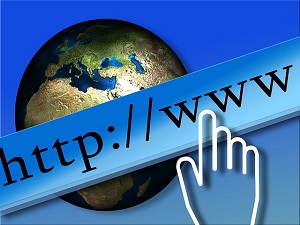 Chances are if you’ve answered a sales call or even listened to the news recently you have heard the term Internet of Things thrown around pretty regularly. Talking about the Internet of Things is all the rage these days and while it might sound a little vague and strange there is an actual design philosophy behind this term.
Chances are if you’ve answered a sales call or even listened to the news recently you have heard the term Internet of Things thrown around pretty regularly. Talking about the Internet of Things is all the rage these days and while it might sound a little vague and strange there is an actual design philosophy behind this term.
Internet of Things Defined
At its most basic, the Internet of Things is defined as a design philosophy and development of the Internet in which all types of devices are connected to the Internet and transmitting data to and from the Internet. These devices can range from the televisions in our living rooms to the cars we drive and can even include basic devices such as our refrigerators and toasters.
They Get Together And Have A Cozy Chat
These devices will then communicate via the Internet to other devices we use and even send date to vast data storage warehouses to better improve how we use the devices and possible even change how we interact with these devices. While it may seem somewhat absurd to have our refrigerators connected to the Internet, there are still many other devices that can prove to be useful when they can placed be online.
Automatically connecting these devices can also make upgrades much easier for both consumers and the companies as updates can easily be pushed via a software update instead of the need to buy a brand new device.
M2M Communication
One of the biggest benefits of the Internet of Things is M2M communication. M2M, or machine to machine communication, will allow our wide array of devices to communicate with each other automatically through our home networks or the Internet so we can receive updates on the status or even control these devices from virtually anywhere.
Imagine sitting at your desk at work and being able to preheat your oven before you get home, or with a few taps on your phone or computer being able to easily record your favorite television show if you have to work late. These are just some of the most immediate benefits of machine to machine communication to our daily lives.
Exponential Growth of the Internet
If you thought the Internet was vast and large now, it is nothing compared to what the Internet will be like once the Internet of Things is fully established. It is estimated that there will be approximately 26 billion devices connected to the Internet by the year 2020 and the growth won’t stop there. All these devices require massive amounts of bandwidth and servers in order to operate effectively, thus you can expect to see the Internet grow larger and faster than it ever has before in the coming years.
Potential for Abuse
Privacy advocates are wary of what the Internet of Things will mean to personal privacy in the future. With these devices communicating our usage, needs and wants to the Cloud, vast data farms are expected to grow to meet the need to store and process data from of all these devices. With this amount of data, there is great potential for abuse and invasion of privacy as well as overstepping from advertisers as everyone seeks to get their piece of the pie. In addition you can expect hackers to take their shot at these giant data warehouses as they attempt to access the ever growing amounts of personal information being stored on the Internet.
In the coming years you can expect to see more and more devices released that are capable of communicated with your smartphones and eventually with each other all via the Internet. In fact, many see the Internet of Things as the next big industrial revolution with potential growth that has not been seen since the great digital revolution. While some of the Internet of Things devices might seem a bit ridiculous right now, you can expect to see more and more use for these items as manufacturers and entrepreneurs work to improve all the products we use on a daily basis.






Social Media